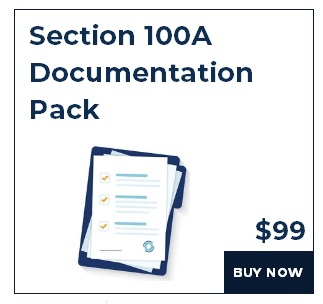
ATO Updates
Determination released: Seasonal Labour Mobility Program
A legislative instrument has been made to ensure foreign resident employees under the Seasonal Labour Mobility Program who previously held a Temporary Work Visa (subclass 403) and have extended their stay in Australia using a different temporary visa granted under the Migration Act 1958 (Cth) continue to be taxed at a final withholding rate of 15%.
Determination released: New SMSF in-house asset exclusion
In response to COVID-19, the ATO has finalised an instrument that provides an in-house asset exemption where the SMSF:
- allows a related party to defer the payment of rent owing under a lease agreement (on arm’s length terms) to ease the financial impact of COVID-19 which creates an asset held by the SMSF; or
- holds an asset that is an interest in a company or unit trust, and that company or unit trust allows a tenant to defer the payment of rent under a lease (on arm’s length terms) because of the financial impact of COVID-19.
This temporary exclusion is available in the 2019-20 and 2020-21 financial years.
State Taxes
New South Wales: Surcharge purchaser duty and surcharge land tax for discretionary trusts – 31 December 2020 deadline to amend trust deeds
Trustees of discretionary trusts holding NSW residential land (regardless of where the trust was established) may need to make urgent changes to their trust deed to avoid incurring surcharge purchaser duty and surcharge land tax. Surcharge purchaser duty is an additional duty charge, at a rate of 8%, which applies to acquisitions of NSW residential land by a foreign person. Surcharge land tax is charged at 2% on the taxable value of residential land owned by a foreign person.
Click here to read our Tax Flash for more information.
Victoria Budget handed down: Payroll tax changes and land duty concessions
The Victoria State Government handed down its 2020-21 State Budget which included measures such as:
- increase of the threshold for making annual (rather than monthly) payroll tax payments from $40,000 to $100,000;
- a 50% land transfer duty waiver for eligible new residential properties and a 25% land transfer duty waiver for eligible existing residential properties;
- a 50% commercial and industrial land transfer duty concession for eligible properties;
- a 50% land tax discount for eligible new build-to-rent developments; and
- land tax exemptions for land owned and used by non-for-profit clubs.
Other News
Temporary full expensing: Eligibility criteria to be expanded
The Government announced it will introduce legislation to expand the eligibility criteria for businesses to access the temporary full expensing measure, which currently allows businesses with an aggregated turnover of less than $5 billion to deduct the full cost of eligible depreciable assets of any value in the year they are first used or installed ready for use.
The legislation will introduce a new alternative test for temporary full expensing. To satisfy the new test, companies must have:
- less than $5 billion in total statutory and ordinary income (excluding non-assessable non-exempt income) in either the 2018-19 or 2019-20 income year (on a standalone basis); and
- invested more than $100 million in tangible depreciating assets in the period 2016-17 to 2018-19.
This will mean businesses with an aggregated turnover of more than $5 billion due to the income of an overseas parent or associate will now be able to qualify provided they meet the additional investment requirements.
Board of Taxation CEO update: November 2020
The Board of Taxation has issued its CEO Update which discusses the reviews the Board is currently undertaking. The update includes an overview of the corporate tax residency review and the review of granny flat arrangements. Most notably, the Board is working towards releasing a discussion paper before the end of the year as part of its Review of CGT Rollovers.
Cases
Gennai v FCT [2020] AAT 4667 – Timing of ESS discount income for terminated employee
The taxpayer was granted options to acquire shares in December 2013 under an employee share scheme (ESS). In October 2014, the taxpayer’s employment was terminated. The taxpayer subsequently exercised the option to acquire 15,000 shares in January 2015 (which was in accordance with the terms of the ESS). The AAT affirmed the Commissioner’s decision that the discount given under an employee share scheme in relation to the options was assessable income to the employee in the year which his employment was terminated because there was a real risk of forfeiture or loss of those interests at the time the options to acquire the shares were granted.
DCT v APSC Pty Ltd (Deregistered) [2020] FCA 1591 – Company’s registration reinstated to issue amended assessment
In this case, the Federal Court made an order that ASIC reinstate the registration of the respondent company to enable the ATO to issue an amended income tax assessment.
The respondent company had been subject to an ATO review for an R&D offset claim made in the 2017-18 financial year. The ATO found that the respondent company was not entitled to the offset and was liable for an administrative penalty for recklessly making a false and misleading statement. However, prior to the completion of the ATO review, ASIC deregistered the company for failing to file documents. The deregistration prevented the ATO from issuing an amended assessment or a penalty assessment.
Derrington J ordered that the company’s registration be reinstated as the Commissioner was a ‘person aggrieved by the deregistration’ (because he was unable to issue an amended assessment and pursue the amount owed) and that it was just that the company’s registration be reinstated.
Very Important Business Pty Ltd v FCT [2020] AATA 4698 – Gold refiner unsuccessful in claim for input tax credits
This case concerned input tax credits that the taxpayer had claimed for acquisitions of jewellery and other items in their 2016 Business Activity Statement. The taxpayer claimed that it had paid GST on all of the relevant acquisitions and was thus entitled to full input tax credits. However, the Commissioner took the view that not all of the purchases were by way of taxable supply, and therefore the input tax credits claims should be apportioned.
The case turned on the inability of the taxpayer to provide sufficient evidence for the AAT to overturn the ATO’s assessment of the input tax credit entitlement. The taxpayer ‘… did not point to records or other evidence to prove the bags of jewellery and other items it received did not include items which were already precious metal’ (which would be a GST-free supply).

